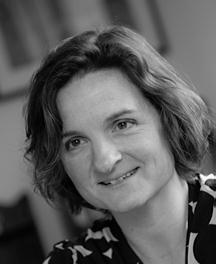Professor Claire Hughes
Claire Hughes has been Professor of Developmental Psychology in Cambridge since 2012. She is the Deputy Director of the Centre for Family Research, and a Fellow of Newnham College. Prior to her professorial promotion, Claire was a Lecturer, Senior Lecturer, and then Reader in the University. Before taking up her first academic post in Cambridge, Claire had worked for six years at the Social, Genetic and Developmental Psychiatry Research Centre (Institute of Psychiatry, London) as an MRC Research Fellow and Lecturer. The two years before this saw Claire working in Paris as a post-doctoral Fellow at the Fyssen Foundation (based in the Hopital Robert Debré), and at the Université de Paris V.
After completing her BA in Cambridge (in Experimental Psychology), Claire remained here to pursue her PhD; the title of her thesis was Executive Dysfunction in Autism. Following on from her PhD, Claire's early research interest was focussed on autism but, during her time at the Institute of Psychiatry, her research focus shifted to hard-to-manage preschool children. Claire has been engaged over a number of years in a Health Foundation/ESRC-funded longitudinal study, which has followed a group of children from a variety of backgrounds, from the age of two. The study is investigating individual difference in theory of mind and executive function, and their relation to adjustment to school and social relationships. The study's methods include filming participants interacting with their close family members, friends, and other peers.
Claire is a highly-cited scientist, and her research has been published in range of journals, including the Journal of Child Psychology and Psychiatry and Developmental Neuropsychology. Claire is the author of Social understanding and social lives: from toddlerhood through to the transition to school, which was published in 2011 by Psychology Press. For this work, Claire received the 2014 Academic Monograph Award from the British Psychological Society. This Award is presented for "...a significant scholarly work ... that has contributed to, defined or redefined an area of psychological knowledge" (BPS website Book Award page).
Claire is a member of The Centre for Science and Policy (CSaP). Through a range of activities, the CSaP helps the sciences and technology to serve society.
As the Department's WiSETI contact, Claire is taking positive action to support and promote other women in science.
Claire has three school-aged children.
Read More
Claire's profile at the Centre for Family Research
2014 British Psychological Society Awards
Guardian article on Claire's five-year study findings (2011)

